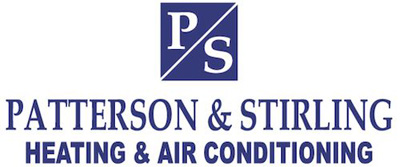
We can all benefit from saving a few bucks from time to time. An easy way to do this is by identifying energy inefficiencies in your home. Upgrading your HVAC system or adding a smart thermostat, for example, gives you more control over your HVAC system, leading to a more energy-efficient home and savings on your monthly energy bills.
Read on to learn about 4 ways you can make energy-efficient home enhancements.
1. Use Smart Home Products Like a Smart Thermostat
If you still use a round-dial thermostat and access it manually, try taking a step toward the future by installing a smart, or Wi-Fi, thermostat – which comes with several features to improve your home's energy efficiency.
The feature homeowners like the most is being able to access their smart thermostats from wherever through their smartphone or other smart device. As an example, if you forget to use your thermostat before taking a vacation, you can simply pull out your smartphone and make the necessary adjustment.
Similar to a programmable thermostat, a smart thermostat permits you to set up a schedule for your home’s temperature according to the time of day and day of the week so you’re not cooling or heating an empty house. Smart thermostats also have the ability to learn your temperature preferences over time and automatically make energy-efficient modifications. They also provide monthly energy reports that show how much energy you've used and when so you can make changes to save money.
If you’re curious about how to secure a free smart thermostat, ask your utility company to see if there are any discounts or free smart thermostats offered.
2. HVAC Tune Ups
Unfortunately, lots of homeowners often forget to keep their heating and cooling systems maintained. While this may not seem like a huge deal, ignoring maintenance can produce a number of issues, including inefficiency, breakdowns, and a shorter system lifespan.
When performing an HVAC maintenance service, the technician will examine your HVAC system, clean key components, and pinpoint minor flaws before they produce bigger, more expensive repair issues. Maintenance can keep HVAC systems running in optimal condition, which means less energy is used to heat and cool your home. This will help with your energy bills, prolong the lifespan of HVAC equipment, and lead to fewer repairs.
We encourage two HVAC tune ups each year – once in the spring before summer and another during the fall before the arrival of cold weather.
3. Replacing Your Aging, Inefficient HVAC Equipment
Regretfully, like all appliances, HVAC systems can't run forever and eventually need to be replaced. Modern heaters and cooling products are much more effective than models produced just over a decade ago. Luckily, quality HVAC companies like Patterson & Stirling can perform professional services including furnace installation in Erie.
Well-maintained furnaces and air conditioners can last about 15-20 years. If your systems are within that period of time, it is often be a good idea to replace them early to minimize the risk of premature breakdowns that can leave you cold and uncomfortable on a cold winter night. If your HVAC system is approaching 15 years old and needs an expensive repair, it’s almost always time to replace the unit. According to the U.S. Department of Energy, getting a new HVAC system can save you between 20-40% on your monthly energy bills, so you’ll recover some of the costs of installing a new system.
A professional heating and cooling technician can help you identify the most energy efficient HVAC system available. For the most part, try to find HVAC systems that are Energy Star certified, meaning the equipment fulfills strict guidelines made by the U.S. Environmental Protection Agency. LENNOX HVAC systems are often some of the most efficient systems on the market, offering both high AFUE and SEER ratings. AFUE is intended for heating systems and illustrates how well they convert fuel to heat. SEER, meanwhile, is used to calculate the energy efficiency of cooling systems.
Get in touch with a reputable HVAC provider like Patterson & Stirling for air conditioning installation in Erie.
4. Use Energy-Efficient Air Filters
When you’re shopping for new HVAC filters, keep in mind that not all air filters are capable of providing the same results. Some air filters are far more efficient than others, resulting in lower energy bills and a cleaner home environment.
The effectiveness of HVAC air filters is rated by their Minimum Efficiency Reporting Value, or MERV rating. The MERV scale ranges between 1-20; the higher the number, the more efficient the filters are. It’s relevant to note, though, that high-efficiency air filters can sometimes obstruct airflow too much depending on the type of HVAC system you installed. It’s beneficial to read the owner’s manual before buying a filter to find the best option for your system.



